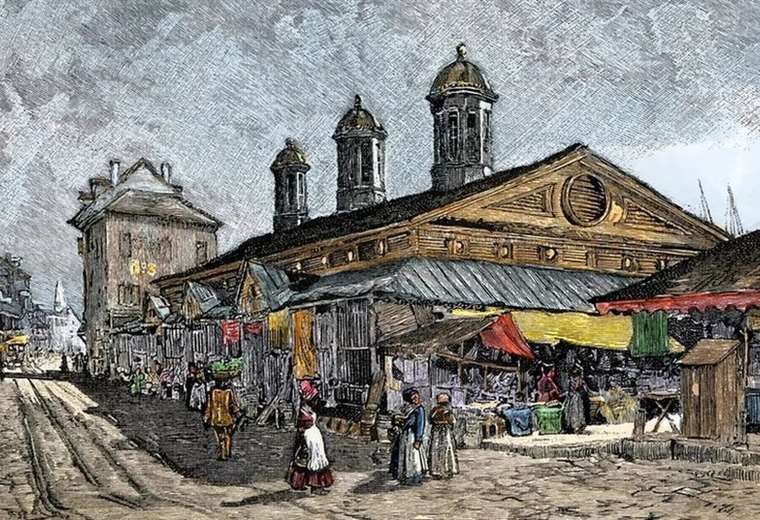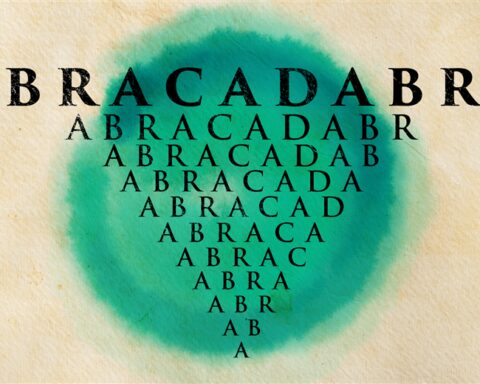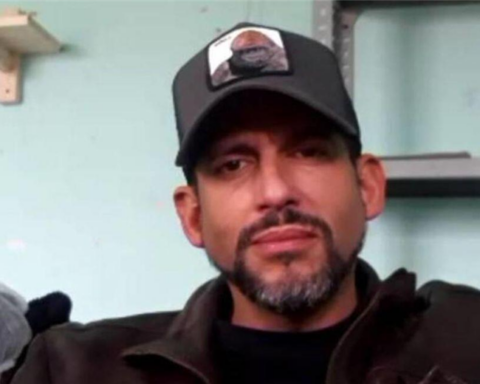April 22, 2023, 9:13 AM
April 22, 2023, 9:13 AM
At Hideaway on Lee, a music bar in Lafayette, Louisiana (United States), Cedric Watson sang Oh bye bye in Louisiana French. The tune always gets the crowd on their feet and energetically dancing to steps that everyone here seems to know as intuitively as shelling a crawfish.
Watson played his Hohner accordion with his feet, while his band, Bijou Creole, played the washboard (also called frottoir) and an intense rhythm on the guitar. Then dancers in cowboy hats milled around.
As the Grammy-nominated musician slowed down with a bluesy version of Ma Petite Femme, the dancers began to dance an elegant waltz. Watson traded in the accordion for a violin and went from singing in Louisiana French to the kouri-vini, a language in Danger of extinction.
Today, Watson is one of the brightest talents in the American zydeco music genre.
Zydeco is the traditional music of the Colored Louisiana Creoles, the historic ethnic group made up of mixed-race people born to European and African settlers in the days of the colony in the USA.
Combine elements of blues, R&B and soul, and uses percussion techniques that reflect his African-American and Afro-Caribbean roots. In addition to Louisiana English and French, he is also sung in kouri-vini.
Renaissance
Watson is part of a popular movement to revive kouri-vini, a storied name for the Louisiana Creole language that has been brought back to avoid confusion with other things “Creole” such as ethnicity, musical styles and culinary traditions.
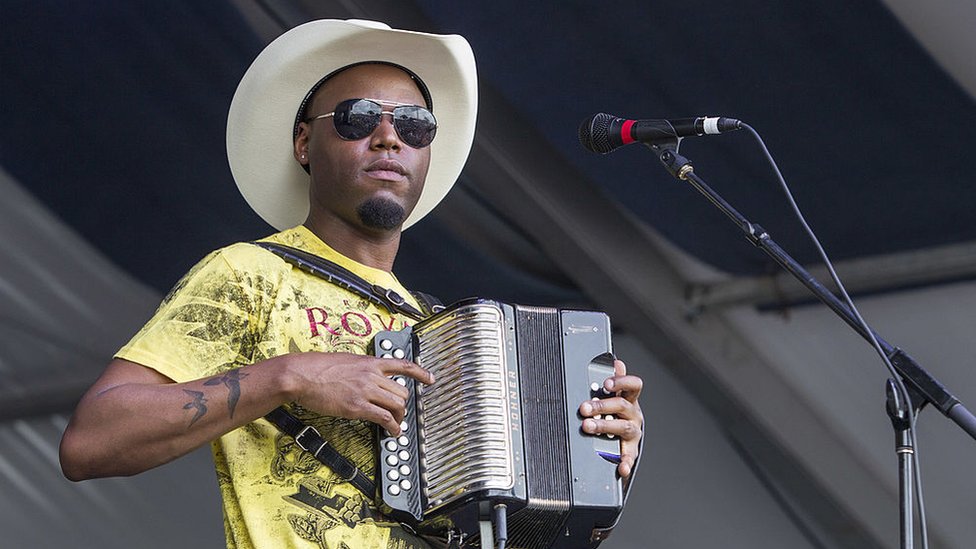
Watson’s next album, due out this summer, will be sung almost entirely in kouri-vini.
Today there is fewer than 6,000 people speaking the language, but, by the turn of the 20th century, it was spoken by much of the Creole population in the 22 parish regions of southwestern Louisiana, known as Acadiana.
This unique cultural enclave in the US is sometimes called Cajun Country, but long before the arrival of French-speaking Acadians, or Cajuns, from Nova Scotia in 1755, there was a much larger population of French-speaking Creoles. , people with roots in Europe and Africa who were born in Louisiana.
Thanks in large part to a generation of musicians dedicated to preserving it, there is a revival of the kouri-vini. Watson, who plays all over the world, considers himself an ambassador for Creole culture and language.
“When I joined this band in 2011, I only identified as African American, but now, after years of traveling and learning, I also identify as Creole,” says Desiree Champagne, a musician in Watson’s band.
“The importance of preserving culture and identity is to understand who you are and where you come from, what you are a part of.”
The language of the elders
Kouri-vini originated in Louisiana, but in the early 1900s it spread beyond its borders to Texas, where Watson is from, and he grew up listening to older relatives exchanging neighborhood news in that language.
As they died, Watson, who is African American, realized that this ancient language was dying with them. So he began to use the stage as a platform to revitalize this language that is deeply linked to transatlantic tradeof slaves.
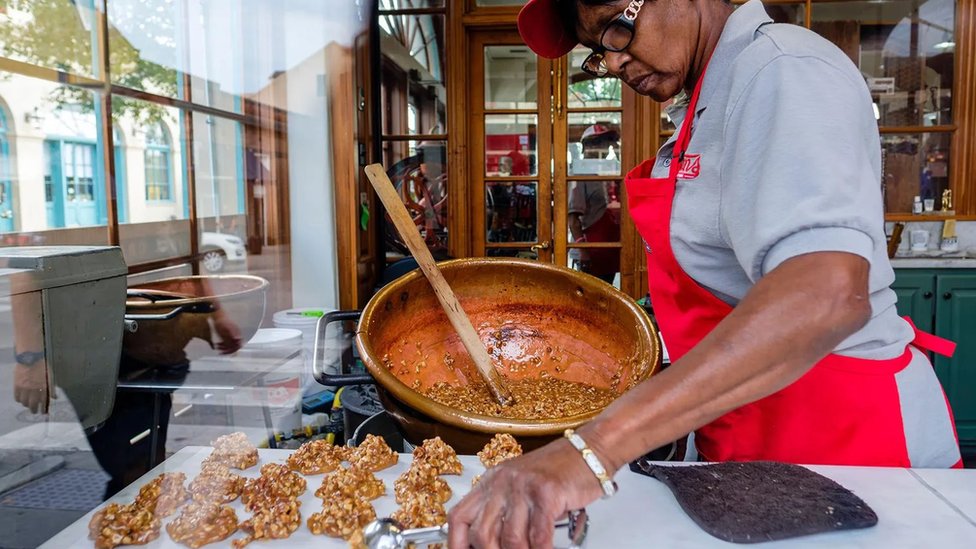
In the early 17th century, newly enslaved people created an amalgamation of their native West African languages and the French that colonists used to communicate on the Louisiana sugar and indigo plantations where they worked.
“Is he first language all these Africans from different tribes and caste systems would speak when they were enslaved,” Watson says.
“They had these pidgin languages that they would speak for a couple of generations, but eventually it became an organized language, which is Creole (kouri-vini),” whose name comes from the Creole pronunciation of the French verbs “courir” (to run) and “venir” (to come).
“lower” language
Until recently, Kouri-vini was considered an inferior language, spoken by the uneducated people.
“Most opinions (…) about languages and language varieties are actually opinions about the people who speak them,” says Marguerite Justus, a linguist and community development specialist at Codofil (Council for the Development of French in Louisiana).
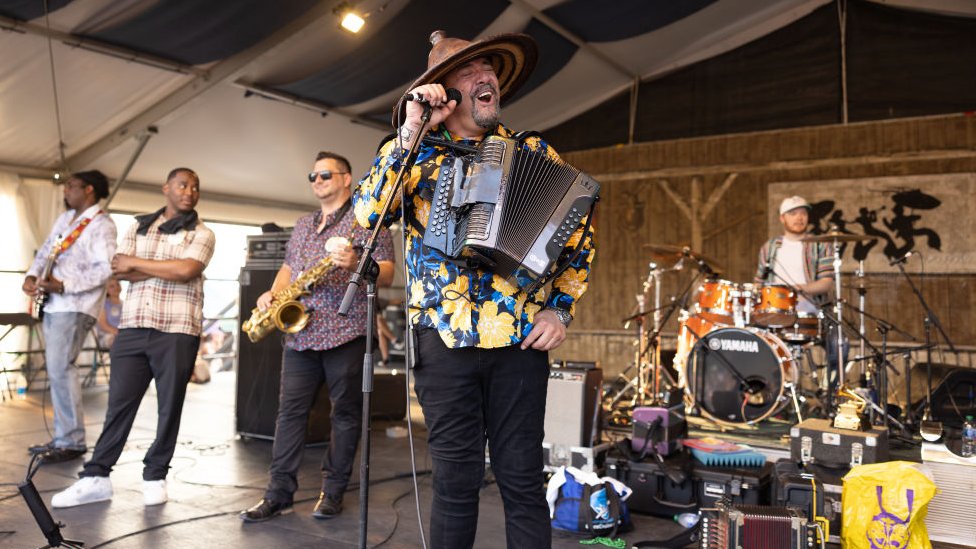
Traditionally, zydeco music has been sung in English, Louisiana French, and kouri-vini.
“If people who speak a certain language or dialect are perceived as low status, then we are inclined to perceive their way of speaking as low status.”
Interestingly, not all Kouri-vini speakers were of color. In the 19th and 20th centuries, whites – especially children – learned the language from the domestic servants in their homes.
Decline and revitalization
The decline of the kouri-vni began with the Louisiana purchase of 1803. When a nascent United States acquired the Louisiana Territory, non-English speakers felt pressure to learn the language and culture of the new government.
The kouri-vini received another blow during World War I, when speaking any language other than English was considered unpatriotic.
Today Louisianans are eager to reclaim their language, and there are moves to resurrect it.
Over the past decade, an increasing number of adults and children have been learning kouri-vini online. Louisiana Historic & Cultural Vistas offers online kouri-vini courses that fill up quickly, in part because young people who grew up hearing their elders speak the language want to become fluent.
A new generation of kouri-vini speakers He is also doing podcasts, hosting TV shows and even writing books in the language.
Though only 20 years old, self-proclaimed language activist Taalib Auguste started LA Creole Show in Télé-Louisianean online channel in Lafayette that promotes Creole culture.
He even wrote a book in kouri-vini called koushma (“Nightmare”), inspired by the story of an enslaved man he heard from his grandparents.
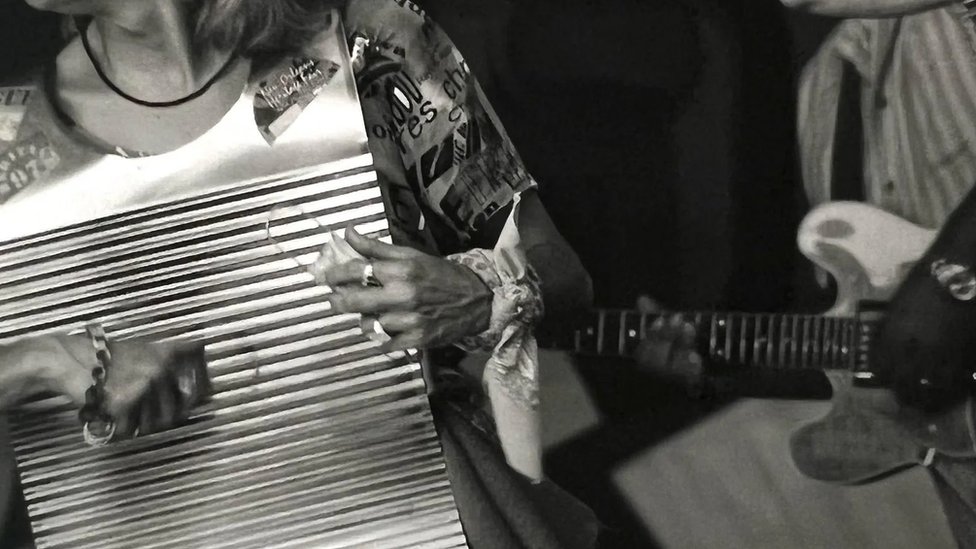
Since kouri-vini was transmitted orally, it is challenging to write in that language. There was no comprehensive approach until the “Louisiana Creole Spelling Guide” was published online in 2016.
Oliver Mayeux, a linguist and researcher at the University of Cambridge in the UK, contributed to the guide and was a key player in the revival of kouri-vini.
His father was of Louisiana Creole ancestry, so he is passionate about preserving the language that is so closely tied to Creole identity.
“The genesis of a new language on plantations in colonial Louisiana is testimony to the fact that these enslaved people were just that, people. People with their own culture and traditions, hopes and dreams,” Mayeux notes.
“Language is a living link to that moment in time. The stories of its speakers must be kept alive. Their words must be remembered.”
everything to learn
Mayeux and a group of colleagues collaborated on Ti Liv Kréyol (‘Little Creole Book’), the first book for those who want to learn kouri-vinipublished in 2020.
It is illustrated by Jonathan Mayers, a Kouri-vini-speaking artist and poet who works to elevate Creole culture and language.
These days, zydeco music is one of the best ways for travelers to encounter kouri-vini in southwest Louisiana. The happy melodies are heard everywhere.
Flannery Denny likes music so much zydeco who moved to Louisiana from upstate New York.
“Music unites people across borders that tend to divide people,” says Denny. “On the dance floor, age, geography and politics don’t matter. People are dedicated to enjoying the moment.”
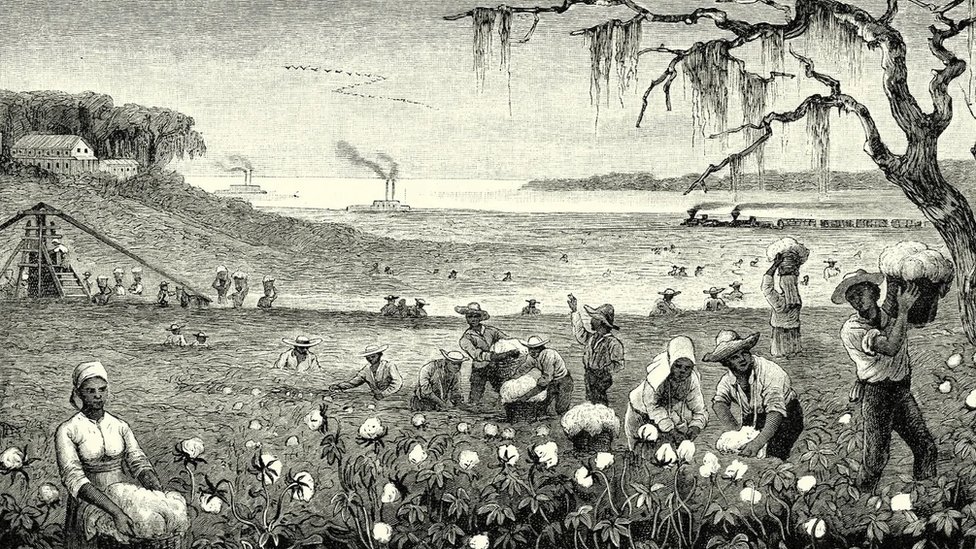
Corey Ledet, lead singer of the band Corey Ledet & His Zydeco Band, is another Grammy-nominated African-American musician dedicated to keeping the kouri-vini alive. He can be seen around Lafayette playing at Feed & Seed or the Blue Moon Saloon.
Growing up in Texas, Ledet often visited his family in Parks, Louisiana, who spoke Kouri-vini, but he was reluctant to learn it.
To become more proficient, take lessons with Herbert Wiltz, one of the founders of CREOLE Inc, a non-profit organization that preserves and promotes Creole culture.
Ledet attends Wiltz’s La Table Kreyol (“Creole Table”), which offers opportunities for students to practice conversation.
“My goal is to be fluent enough not only to speak it, but also to read and write it, so that I can offer it to other people for free,” explains Ledet. “It’s very important to keep it alive, because it’s definitely part of Louisiana.”.
His next album, medicalmen (“Medication”), is sung entirely in kouri-vini.
“Music is my medicine,” he says. “Whenever I’m feeling down, it lifts me up. When people listen to zydeco, no matter what’s going on in their life, it puts a smile on their face.”
He hopes that she will also put some kouri-vini phrases in her mouth.
Now you can receive notifications from BBC News World. Download the new version of our app and activate them so you don’t miss out on our best content.

